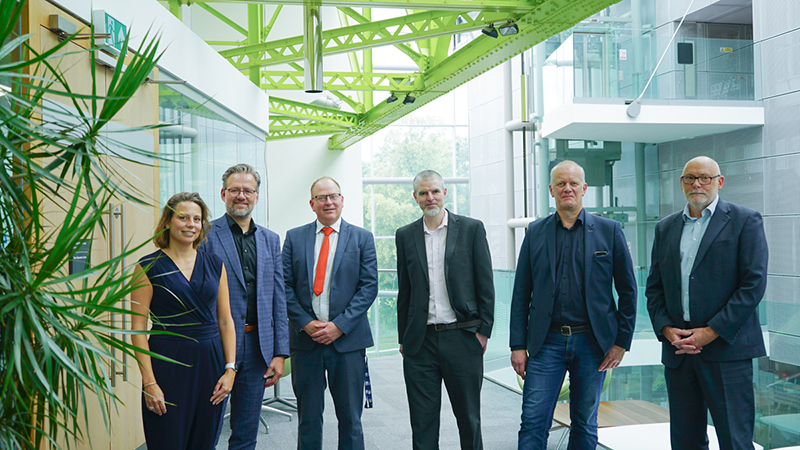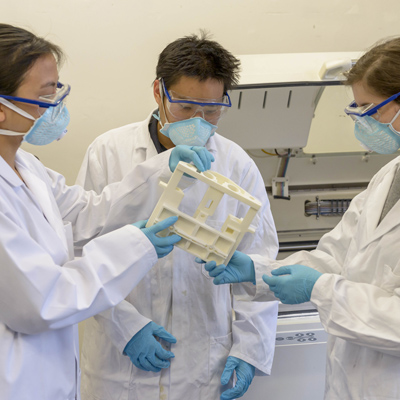
In the face of the growing global water crisis, Royal HaskoningDHV and Cranfield University have signed a strategic relationship charter to co-create solutions that deliver sustainable and resilient water futures.
The two organisations have come together to find opportunities to deepen and broaden their collaboration on research, education, technology development and knowledge transfer. The parties will collaborate on a wide range of topics and challenges. The two organisations have already identified synergies and opportunities around the following challenges:
Sustainable Wastewater Treatment and Water Quality Management
Collaboration to deliver sustainable low-cost solutions to meet ever-more stringent discharge consents, and turn this challenge into an opportunity for improved environmental and societal outcomes. Specific areas for focus include, reducing greenhouse gas emissions from wastewater treatment processes, removal of micropollutants from water supply, wastewater epidemiology, and combatting emerging pollutants.
Net Zero and the Circular Economy
Developing the required science and technology to transition the water sector to net zero. Opportunity in this area spans disciplines with emissions-free treatment, fuel and heat decarbonisation and resource recovery through green technologies at the heart of the collaboration.
Paul Lavender, Director, Water Utilities UK at Royal HaskoningDHV explains: “Both our organisations have been working on innovations to address the water industries challenges. By combining our interests and expertise in specific technologies and their application, we aim to accelerate the deployment of new technology. Royal HaskoningDHV has always had a commitment to investing in research and innovation and developing long-term partnerships. We see this as a new chapter in how we can engage with the UK water sector. We are excited to see how we will be able to exploit this to its best advantage, to help us develop water systems fit for the future.”
Professor Paul Jeffrey, director of the Water Theme at Cranfield added: “Effective collaboration between the science-base and solution developers is crucial to the delivery of sustainable and resilient water futures. Our relationship with Royal HaskoningDHV is already of long standing and we are very proud to be able to formalise it with this strategic charter. This will allow a more systematic approach to our collaboration and enable us to respond more quickly to opportunities. Both organisations are recognised for the problem-driven emphasis to their knowledge generation and application activities, and the ultimate beneficiaries of the collaboration will be the communities and businesses facing water security and water management challenges.”





